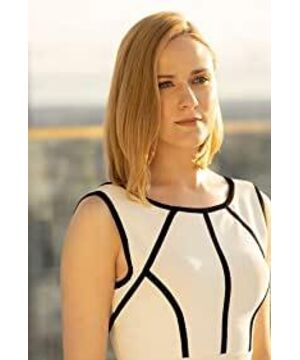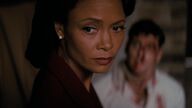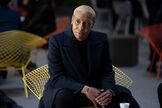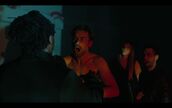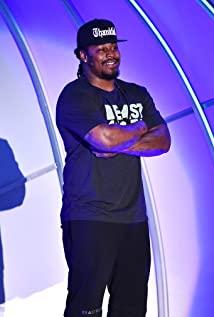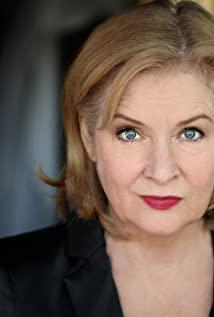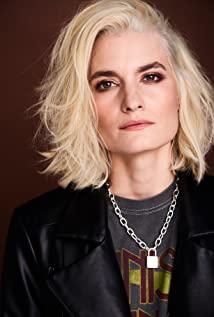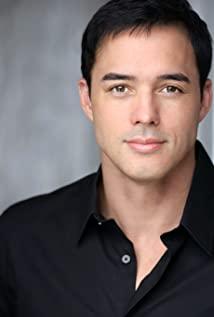[Note: There is a little spoiler]
In the first and second seasons, the values of the theme line are very clear, and it is easy for the audience to empathize. The manufactured robot AI has self-awareness, hoping to escape the fate of being enslaved and tortured, and the robot's revenge is also understandable. The plot of the small world is relatively easy to be self-consistent, especially the timeline of the first season is interspersed, which brings a good suspense, and the values are not too vague. William's journey of self-discovery is also a process of self-alienation, while Demei's self-discovery is an opportunity for awakening. Self-discovery itself represents freedom and is not controlled by external instructions and evaluation systems. This is relatively easy to understand freedom.
The values of the third season are very wandering. In order to make Demei’s robot rebellion legitimate, a mirror image of the western world, Lei Hebo, was created in the human world. Because of the existence of Leihebo, the definition of freedom can be less complicated, just take Leihebo off the assembly line. But in this season, the screenwriter didn't know whether he wanted to arrange the foreshadowing of the next season or was not satisfied with a simple definition of freedom, and introduced multiple definitions of "freedom".
1) The individual's self-will relative to the self: the fake Hale gets rid of the self-will of German sister, and Caleb gets rid of the self-will of his own illusion. Maeve's decision to temporarily let go of finding her daughter, etc., are all self-choices that the plot strives to describe. This part is quite powerful. But to be honest, there is already Maeve who is close to invincibility. She has been a bit stupid before. Looking for a daughter is not very empathetic, especially since it is completely conceivable that this is a line in her source code. How free is this? The will, so strong is still a slave to the code, but if she gives up this obsession, will she still be her? As far as human nature is concerned, "freedom" and "last resort" are two sides of the same thing. They are both part of "me" and full of tension.
2) The individual's self-will relative to Lei Hebo: Many people are dissatisfied with the life trajectory and future controlled by Lei Hebo, and hope to get rid of control. If you pay attention to one detail, those who show extreme behavior after knowing the truth are people with bad endings, such as suicide in a few years, crimes, and so on. The troubles in the streets are also from the bottom. In the last few episodes, the scenes of riots in various places do not make this sense of freedom very convincing. If the so-called freedom is the freedom of fighting, smashing and looting, what good is it? If the end of Lei Hebo's offline is the demise of human civilization, what is the meaning of such freedom? Individuals pursue freedom from the control of thunderwaves. This social group image is false and ideologically rigid.
3) The self-will of humans relative to machines: The last thing Demei said, I choose to see beauty. She sees and loves many beautiful things created by humans, so her ultimate goal is not to be a robot ("Superman") To destroy mankind, but to give mankind freedom. There is an implicit premise in this logic, that is, she believes that the premise of these beautiful things is that people must be able to make their own choices-this is also a fairly ideological judgment. Evil and cruel things are also the result of self-selection. Self-selection itself can lead to both good and evil. Demei's final reversal blurred the tone of the entire season-so the robot's final plan is to liberate humans? What is her subjectivity as a robot?
4) The real free kingdom as the "Beyond Shore": Bernard finally put on the AR headband and went to the sublime world, where Maeve's daughter and some other robots went. I don't know where. But in theory, this is the ultimate freedom, an eternal paradise, and a place that Maeve pursues. To be honest, this kind of paradise that has lost its secular nature is meaningless. As soon as it appears in the plot, I want to curse bullshit. The finiteness of reality is the ultimate opposite of human freedom, so the solution to the end of freedom is to leave this world and go to the other side. How can the screenwriter be written later? I don’t know, I hope it’s not too religious.
"Westworld" always reminds me of Harari's "A Brief History of the Future." Harari discussed a lot of "free will" issues. After getting more and more understanding of the human brain nervous system and biochemical mechanisms, will it dispel the concept of "self-will", the so-called "self-will" is just the result of various biochemical processes. Including the hypothesis put forward by "Inception" before, any idea can be implanted into people's consciousness through some kind of operation, making people feel that they are what they have thought of, and they are obsessed with achieving it. Another example is the mental seal in "Three Body". These things make me more and more suspicious of the absolute legitimacy of the so-called "freedom". Where is the limit of "freedom", what is the basis of freedom, and in what sense are people free? Is there any value above freedom relative to what kind of freedom? "Westworld" has made a good start, but I regret to find that it is still in the conviction that "if it is for freedom, you can throw away both". Maeve, a strong man, is stuck in the motive of looking for a daughter, and willing to become a tool of Seras, is an example. How justified are individual will and desires ("ego grasping")? I am increasingly suspicious. Can "self-will" provide meaning and value? I also doubt it.
My favorite of this season is the sixth episode, because Hale really surprised me. The screenwriter wrote her transformation arc very convincingly. From the beginning of the suspense of her true identity to her self-determination of deviating from the German will and the real Hale, this is the only true "free" plot I feel in this season. But her final intention is unclear. She has created a lot of hosts. Is she trying to replace humans with robots, or to rule humans? Her motivation was very vague in the last episode, and it is estimated that it will be the main line of the next season.
In this season, the real-world sense of the future is well grasped, but it is really not that exciting. It may also be related to the lack of appearance of the young male protagonist, and the lack of personality charm. Speaking of it, the first season is the best. It has a span of thirty years and has an indescribable sense of epic. Both the old Ford and William Jr. are particularly charming. The second season was a little bit mystery, but I held it anyway, but unfortunately the plot that shocked my father-in-law's resurrection was not reflected in the follow-up story. It is hoped that the fourth quarter can digitize people, or "how people can be immortal without flaws in the virtual world" to carry forward.
View more about Parce Domine reviews


